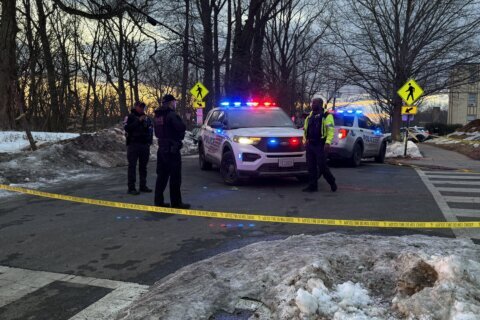WASHINGTON — Most people seem to welcome the idea of D.C. police officers wearing body cameras. But there’s a major concern about how the body camera program will work.
The problem — D.C.’s mayor put language in the city’s 2016 budget that would prevent individuals who aren’t involved in the case from accessing footage recorded by the cameras. The mayor contends the city doesn’t have the manpower to redact the footage in order to protect the privacy of individuals. She says it’s a massive task.
But that’s not going over well with the American Civil Liberties Union (ACLU) of the Nation’s Capital or with D.C. Councilman Kenyan McDuffie.
The local ACLU is calling on the D.C. City Council not to fund the mayor’s budget request for 2016 for the $5.1 million (to be spent over the next 18-months) for the cameras to outfit 2,800 officers.
McDuffie had raised concerns about the mayor’s policy asking, “who precisely is going to have footage from those cameras?”
He says this is about striking a balance between privacy issues and the use of body cameras during police interactions.
McDuffie says, “As you know the mayor’s proposed budget included language that would create a blanket exemption for FOIA (Freedom of Information Act) requests.”
FOIA is good way to hold the government accountable says McDuffie.
“I don’t’ support passing legislation in a budget process that does not include input of citizens, of residents of the District of Columbia who are going to be impacted by this policy.”
That’s the main reason why McDuffie is holding a public roundtable on the body camera program. He expects police chief Cathy Lanier to be there. It’s being held on May 7 at 2 p.m. in room 123 of the Wilson Building.
McDuffie says he generally supports the use of body cameras.
“They do help to enhance transparency and promote accountability within law enforcement. While also helping to reduce false complaints against law enforcement officers,” he says.
But McDuffie doesn’t think the cameras are a solution.
He says, “I would venture to say they are one step in the right direction to promoting accountability and transparency in law enforcement.”
He says before they make that permanent investment in a body camera program, the city needs to make sure the program respects the right of individuals while allowing law enforcement a new tool to enhance transparency in their work. But the cameras would also hold the public accountable for their interactions with law enforcement.
He says, “We want to make sure we strike that balance of transparency and accountability while also respecting the rights of our public.”
The Metropolitan Police Department conducted a six-month pilot program using 165 body cameras which began in October 2014.
McDuffie says, “Unfortunately, there’s not a lot of information that’s been provided with respect to how that program was implemented.”
The police department contends the pilot program was more about the selection process for a camera.







